Dear CIS Community,
Something to Ponder
“When you arise in the morning, give thanks for the morning light, for your life and strength. Give thanks for your food, and the joy of living. If you see no reason for giving thanks, the fault lies with yourself.” - Tecumseh
Future Learning - CIS and The Cayman Islands are home to many nationalities. We may be diverse by passport of course, and also in regards to beliefs around education. We are blessed to be part of a school community where there is regular evidence of our parents and community being supportive of education in general. In turn, the majority of our parents found success in the education system in which they studied as younger people - in short, the “system” has generally served the adults in our community well.
Today, after school, marks the beginning of the school’s October Break. One of the many advantages of a break, or change of pace, is that it can allow for time and space to reflect. Aside from reflecting on such questions as, “What advice do I give to people, that I do not follow myself,” one perennial area of reflection is to question whether the education systems we as adults participated in are best suited for the future. And of course, some accommodations for the notion that the future is one of the hardest things to predict.
The questions I share below are meant to provoke thinking around how we think about education. Should schools be great at status quo or looking to explore and change? Most education systems, and certainly those most definitely found on the island and in the UK focus on reducing the gap between what some agency or body says students should know, against what students show they know. Does such an approach serve our students well in connecting, inspiring, and serving them? Does such an approach make a person jump out of bed, excited for what the new day holds? Could schools, in general, look more towards creativity as a driver - celebrating and cultivating the multiple talents that might capitalize on diversity to foster new talents that might be valued tomorrow and beyond. For example, the talents and skills of a person like Bill Gates would not have served him well 100 years ago, but have been critical the past 50 years. Literacy is a skill that was not needed at all until the printing press was invented around 500 years ago - before that, brawn was often the skill of choice.
Is graduating from university still the “ticket” to success? - In the USA over 40% of recent college graduates have jobs that do not require a degree. It is reported that over 12 million college students will graduate in China this year - the expected unemployment rate or under-employment for these graduates is close to 50%. In the EU, there are notable mismatches with skills needed and education - the European Commission reports that many jobs are unfilled in the EU, even though we are in unstable economic times. What talents are not being cultivated in schools, universities, at play and at home? Societies change, and therefore societies’ needs change, thus redefining the talents that are valued.
Should schools be focused on fixing the past or creating the future? Considering the numbers above … should our students be job finders or job creators? If learning to create jobs is becoming more critical, we need to look at problem-solving (creating our meal) versus following a solution (using a recipe) - thus the importance of problem-based learning, an inquiry approach, and applying knowledge to novel scenarios. Is creating jobs even enough? Do jobs even matter, in a world that is peppered with slogans, memes, and video shorts telling people to follow their bliss, be all in, and just do it - to name a few. When you read / watch the news it is not easy to find much that inspires - there is a lot of injustice, violence, greed, and dishonesty - should we therefore be focusing on things such as mindfulness, contentment and being harbingers of peace. If there is truth to the above, should schools be more strength-based and patience and passion-driven (or does doing so create a setting where, “everyone is special, thus no one is special”), rather than following something that one could argue was made in the past to serve people living in a world that did not change as fast as our current world? In this scenario, schools must look to inspire, rather than merely dictate what people should know - indeed in some disciplines much of the content learned in one’s first year of university is obsolete by the time they graduate. Yet, skills of connecting, habits of health, attributes of kindness, the value of hard work, and the character of doing the right thing even when nobody is watching remain constant. With this in mind, the joy of exploration, the desire to work hard and the willingness to unlearn are increasingly more important.
Be well - please be reminded that classes resume for students on Monday 20 October 2025.
Sincerely,
Jim
Jim Urquhart
Director - Cayman International School

.png?command_1=resize&width_1=430&height_1=430)
.jpg?command_1=resize&width_1=430&height_1=430)





